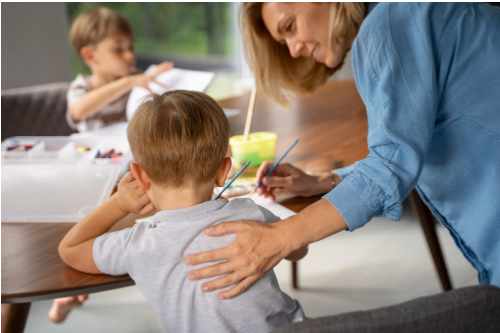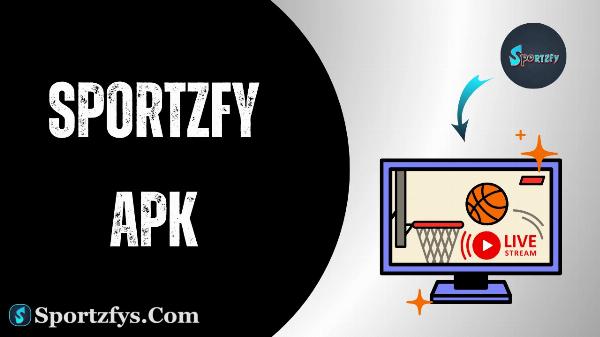Navigating Autism: Where to Find Free Support & Guidance

Getting an autism diagnosis can feel overwhelming. Autism spectrum disorder (ASD) impacts communication, emotions, and daily life. Free resources and support services can guide families through challenges like special education or early intervention needs.
Keep reading to find help that fits your family’s journey!
Finding Local Support and Resources
Support for autism often starts close to home. Explore nearby groups and services to connect with others who understand your journey.
Autism social and support groups
Autism social and support groups help connect people and provide guidance. These groups give a safe space for autistic children, adults, and families.
- AANE (Asperger/Autism Network): Offers free and paid support groups. They also have events like game nights, yoga, and queer adult groups.
- Friend In Me: Runs free online social groups for kids with special needs. They use games and Zoom to connect children around the world.
- Making Authentic Friendships App: Focuses on teens ages 13 and older. It helps them find friends based on location, interests, or diagnosis.
- The Autism Project (TAP): Provides therapist-led social skills groups. These are for kids ages 5-10, pre-teens, teens, and young adults.
- GRASP (Global and Regional Autism Spectrum Partnership): Offers online support groups made for autistic adults to share experiences.
- Community Groups: Many local areas have autism-focused recreation centers or adaptive sports teams to foster friendships and fun activities.
Recreation and adaptive sports organizations
Recreation can help children with special needs build confidence. Adaptive sports offer fun ways to improve social and motor skills.
- Move United offers sports programs for individuals with developmental disabilities. Activities include swimming, cycling, and team games.
- National Ability Center provides year-round recreation for people on the spectrum. It includes skiing, horseback riding, and climbing programs.
- Special Olympics creates inclusive events for children and adults with developmental delays. It promotes teamwork and emotional regulation through sports.
- Spirit Club delivers virtual fitness classes designed for autistic students or children with special needs. Classes focus on body movement, stretching, and balance exercises.
- Hope Center for the Arts hosts online art workshops for developmentally disabled adults, fostering creativity through painting and crafts.
National Support Networks
Support groups across the country offer help to families and individuals with autism spectrum disorder (ASD). These programs connect people to valuable autism-related services and advocacy efforts.
Autism Response Team
The Autism Response Team (ART) helps families and caregivers with autism support services. They provide advice on early intervention services, details about insurance, caregiver training, and finding local resources. Over 20% of their calls are for connecting people in the community. ART also works through Autism Speaks social media groups like Adulting on the Spectrum and Transition to Adulthood.
These spaces give guidance to individuals learning life skills or facing communication challenges during big changes. Knowledge is a key part of autism advocacy—ART ensures families get what they need.
Autism Society programs
Autism Society programs offer many autism support services. They provide resources on early intervention and autism education. Families can also learn about speech therapy, occupational therapy, and other treatments for autism spectrum disorder (ASD). These programs aim to improve communication skills, address sensory processing issues, and support emotional regulation.
They share helpful data on developmental disabilities and coping strategies too. Programs may guide families through Individualized Education Plans (IEPs) under IDEA laws. This helps children get the right education for their needs. For questions or more information, people can contact the Autism Society directly for free guidance.
Online Communities and Digital Resources
Online groups offer a safe space for parents and individuals with autism to connect. They provide helpful tips, emotional support, and various autism spectrum disorder resources for parents.
Autism Speaks social media groups
Autism Speaks hosts social media groups like Adulting on the Spectrum and Voces Latinas de Autism Speaks. These platforms connect families, caregivers, and individuals with autism spectrum disorder (ASD). They focus on sharing tips for daily living, emotional regulation, and coping skills.
Groups like “Transition to Adulthood” offer advice for handling big life changes. Community participation improves health and happiness and promotes autism acceptance. Free online support groups provide spaces for learning about speech therapy or occupational therapy. Move to free online support groups to find more helpful communities.
Free online support groups
Friend In Me connects kids with developmental disabilities. It offers free games and Zoom calls to help children bond and learn social cues. Kids can enjoy virtual play while improving non-verbal communication skills.
AANE runs online groups for all ages and interests. Some are free, while others require payments. These groups give families a safe space to share experiences about autism spectrum disorder (ASD).
Assistance for Newly Diagnosed Families
Starting out after an autism diagnosis can feel overwhelming. Families can find free help through early services and education plans built for their child’s needs.
Early intervention services
Early intervention services help young children with developmental disabilities. These services are free for kids under 3 with delays, even without an autism diagnosis.
- Contact your state’s early intervention program to ask for help. Each state offers services under the Individuals with Disabilities Education Act (IDEA).
- Schedule a free evaluation. Experts check speech, motor skills, and social development to see if your child qualifies.
- Create an Individualized Family Service Plan (IFSP). This plan lists goals and the help your child will get for their needs.
- Access services like speech therapy or occupational therapy. These therapies improve skills like communication and movement.
- Explore Applied Behavior Analysis (ABA) therapy. ABA focuses on behavior development and is often included in early programs.
Families can also find local support groups through these programs to feel connected and supported.
Accessing Individualized Education Programs (IEPs)
Accessing Individualized Education Programs (IEPs) can greatly help children with autism spectrum disorder (ASD). These plans support learning and address unique needs.
- IEPs are developed for children aged 3 and older. They define educational goals, tools, and services such as speech therapy or assistive technology.
- The IDEA law, initiated in 1975 and updated in 2004, ensures all children with developmental disabilities, including autism, receive free public education.
- Parents need to request an evaluation from their child’s school. A team of teachers, therapists, and specialists will assess the child's needs.
- Once approved, an IEP is created during a meeting with the family. The plan includes specific accommodations and learning strategies customized to the child.
- Families can request regular progress updates on their child through IEP meetings or reports. This keeps track of achievements and identifies any necessary changes.
- Schools are required to provide resources listed in the IEP without any cost. This may include applied behavioral analysis (ABA) therapy or occupational therapy sessions.
- Parents can reach out to advocacy groups such as Autism Society for support with IEP processes or disputes.
Conclusion
Support for autism is all around. Local groups, national programs, and online communities are ready to help. Families can find free resources for therapy, education plans, and emotional support.
Whether it’s speech therapy or connecting with others who understand, there’s hope. No one has to face this journey alone.
Note: IndiBlogHub features both user-submitted and editorial content. We do not verify third-party contributions. Read our Disclaimer and Privacy Policyfor details.







